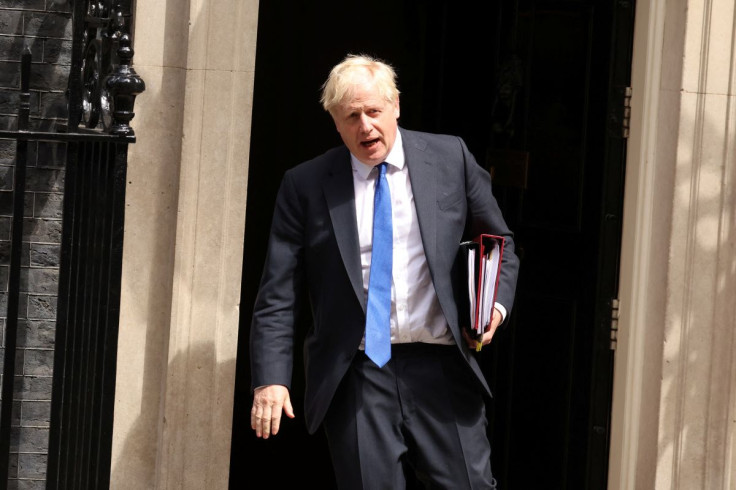'Tough Decisions', UK's Truss Sets Out Pitch To Replace Boris Johnson

Foreign Secretary Liz Truss set out her pitch to become Britain's next prime minister on Thursday, saying she was the only contender with the experience to take the "tough decisions" needed to turn a flagging economy around.
In a testy competition to replace Boris Johnson after he announced last week he was resigning, Truss hopes to distance herself from the frontrunners, former finance minister Rishi Sunak and Penny Mordaunt, a junior trade minister, by promoting her time in government.
There are six hopefuls left in the race that is due to be completed by early September. Whoever gets the job will take on rocketing inflation and low economic growth, as well as the public's lack of confidence in politics after Johnson's scandal-ridden time in power.
Truss, the last hopeful to launch her official campaign, is the latest to promise to restore trust in politics, trying to distance herself from the increasingly personal and bitter briefings and counter-briefings from the opposing camps.
"I will campaign as a Conservative and I will govern as a Conservative. I can lead, I can make tough decisions and I can get things done. I am ready to be prime minister from day one," Truss said.
Asked why she did not resign when support disappeared for Johnson prompting last week's resignation, she said: "I'm a loyal person. I'm loyal to Boris Johnson. I supported our prime minister's aspirations and I want to deliver the promise of the 2019 manifesto."
Truss has taken a tough line on Russia's invasion of Ukraine and said she was crucial in drawing up legislation to override parts of a Brexit agreement signed with the European Union -- a bid to win over party critics of the bloc.
A former trade secretary, Truss is running in third place so far in the race for the Conservative Party leadership, behind Mordaunt and Sunak. Sunak took to the airwaves again on Thursday to say his first economic priority would be tackling high inflation, not the tax cuts pledged by his rivals.
STILL A WAY TO GO
Those remaining -- who also include former equalities minister Kemi Badenoch, Attorney General Suella Braverman and Tom Tugendhat, chair of parliament's Foreign Affairs Committee -- will face a second round of voting by Conservative members of parliament later on Thursday.
If all the candidates reach the 30-vote barrier, the one with the lowest number of votes will be axed from the contest.
Subsequent ballots will eliminate the candidate with the fewest votes each time, to whittle the field down to a final two by July 21. The new leader will then be chosen from those two by the country's 200,000 Conservative Party members, and will be announced on Sept. 5.
Sunak might be the most popular contender with his colleagues, but a YouGov poll of nearly 900 party members found Mordaunt was the favourite, beating any of the others in a run-off. She had a huge lead over Sunak, who fared badly against almost all his rivals, and she is now the bookmakers' favourite.
Britain's economy is beset with spiralling inflation, high debt, and low growth that have left people grappling with the tightest squeeze on their finances in decades. Fuel prices have soared in an energy crunch exacerbated by the war in Ukraine.
The leadership campaign is offering a glimpse of the difficulties the new prime minister might face.
Former Brexit negotiator David Frost was cutting in his criticism of Mordaunt, saying: "She wouldn't always deliver tough messages to the EU when that was necessary."
Tugendhat, who ranked fifth in the first round of voting, said, "It is fair that we (candidates) receive criticism ... I am asking for the trust of the British people for the highest job in the country," he told reporters.
"When you are making a big ask you should expert scrutiny and expect to present yourself to answer to questions."
© Copyright Thomson Reuters 2024. All rights reserved.







